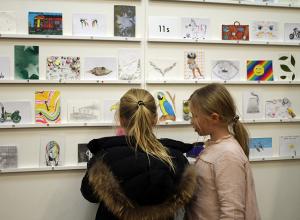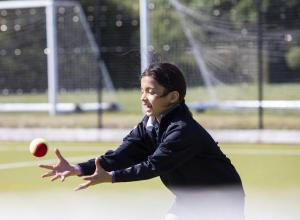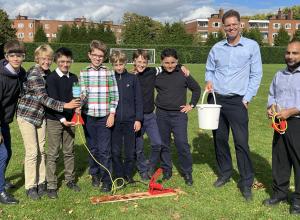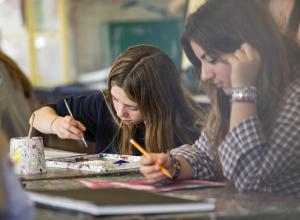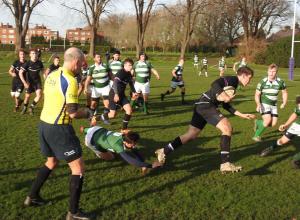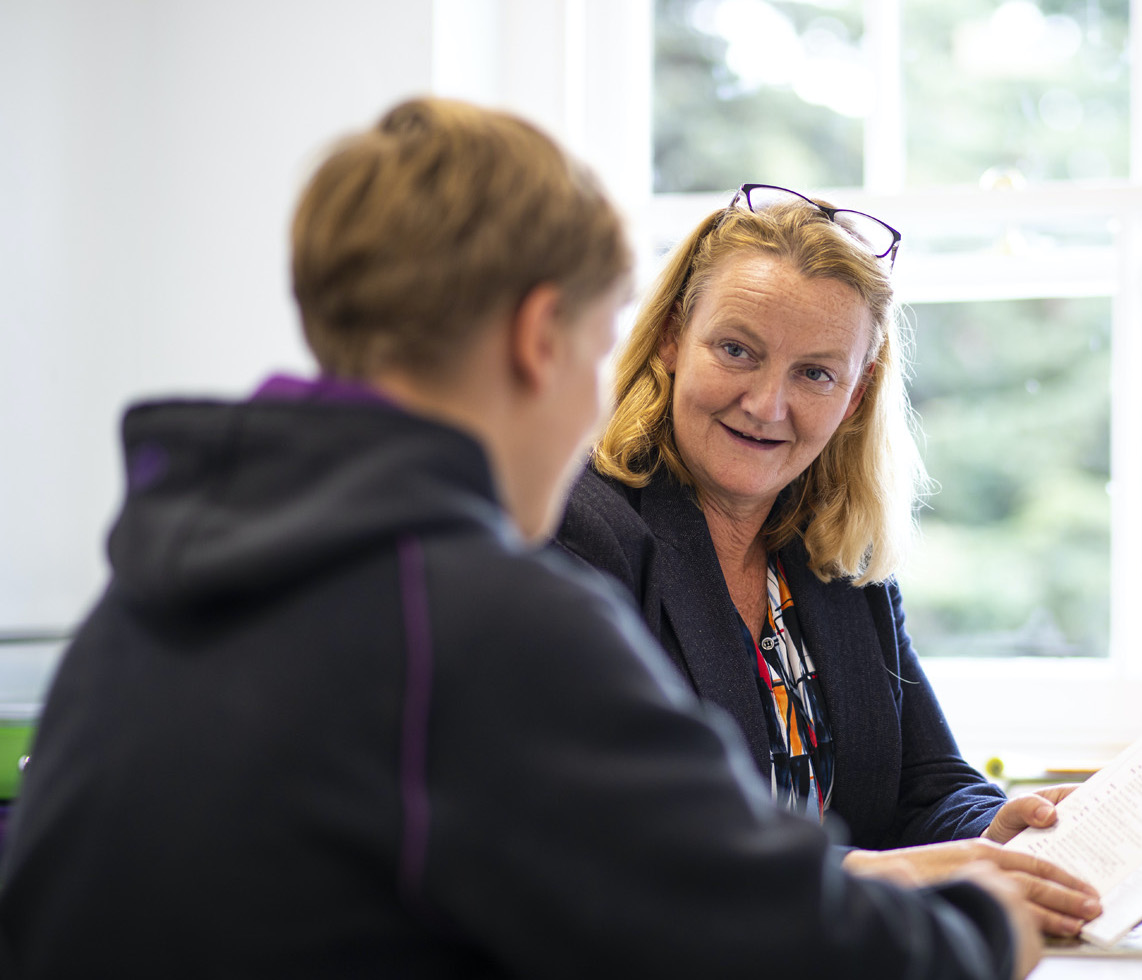
Should teachers share difficult aspects of their own life experience with children? Head of Senior School, Andy Woodward believes such honesty has many potential benefits.
“Tell them nothing at all about yourself!”
With apologies, I am again beginning by quoting that same older member of staff who in around 2004 also told me, a young teacher starting out, to “never, ever apologise!” (see this blog). And, to be clear, I think she was wrong in both regards (I’m sure she was lovely really… even if apparently terrified of children).
I believe that the life experiences of teachers are often just as valuable in teaching and guiding those in their care as are their a ccumulated knowledge of maths or geography.
Andy Woodward, Head of Senior School
Indeed, as previously discussed, I believe that apologising to pupils when you get it wrong because you’re tired, ill-informed or over-hasty is good role-modelling and good practice (as it is for parents). It is doing as we would like to be done unto.
And, sure enough, I also believe that the life experiences of teachers are often just as valuable in teaching and guiding those in their care as is their accumulated knowledge of maths or geography. And even if they aren’t… every assembly message is more impactful for being tacked onto a story; the human brain loves an unfolding narrative, all the more so if it involves someone they know. There is also the hint of the confessional and the extension of a bond of trust, which can pay back in spades. Indeed, I have found that the willingness to share and to risk a little openness makes it more likely that others will then more likely venture a degree of honesty and something of themselves in return.
I have found that the willingness to share and to risk a little openness makes it more likely that others will then more likely venture a degree of honesty and something of themselves in return.
This is helpful in everything from engendering participation in classroom lessons, to meaningful PSHRE discussion, to dynamics on a school trip, to actually getting somewhere in our behavioural investigations. I know, for example, that the moment we truly made a breakthrough with the Year 10 (14s) pupils in understanding the impact of harmful sexual behaviour in schools is when their Head of Year spoke powerfully on the impact of her own experiences when encountering harassment in school, on the street and on a night out.
This frankness was not always present in education. I will happily admit that my own teachers, when at school, were a total mystery to me. To discover a first name was achievement enough – but we never knew if the character before us was married, a fan of Mozart or Kylie Minogue, or actually a serial killer in their spare time (rumours abounded!). Politics teachers spoke about politics and English teachers about poetry. And that was fine and expected. But it meant that all the rest of life – the ups and the downs and the drama that we all experience at school – happened in an entirely secret juvenile realm where we held no sense that teachers would be able to comprehend our real lives… let alone help in them when the going got tough and the grades got impacted.
At my own school, we never knew if the character before us was married, a fan of Mozart or Kylie Minogue, or actually a serial killer in their spare time (rumours abounded!).
I, by contrast, have no issue with the pupils knowing that I am married to what American readers might call my ‘high school sweetheart’, nor that our relationship was made both deeper and difficult by the intrusion of a nasty brain tumour she suffered shortly before I joined this school. I hope that showing such traces of vulnerability and adversity may help them believe that I have something to say to them when relationships become the biggest things in their life, or when they subsequently get complicated. Furthermore, to link to the above, I hope that pupils can learn something from my own mistakes, whether practical (buying an unsafe car that almost killed me while backpacking) or moral (not speaking out when one housemate was bullying another at university).
I certainly learn a large amount from the pupils too – perspectives and insights I might not otherwise encounter in my middle-aged landscape.
I’ll readily confess, I don’t know if I have always got the balance right. It’s been worth me remembering that other people out there have stories worth me sharing in assembly too; ones that are generally a lot more inspiring and worth recalling than my own! But it’s still valuable for the teacher to be somewhere in the mix... We are, strange as it may seem, a person of interest – someone who is important in the lives of those under our care. Just think back and see how many of your teachers you still remember. That relationship may be one borne of necessity, but it can be richer and more beneficial to both sides if we dare to present ourselves as human and to share our interests, enthusiasms and useful flaws. I certainly learn a large amount from the pupils too – perspectives and insights I might not otherwise encounter in my middle-aged landscape.
Now, I write this confident in the assumption that you chose Harrodian knowing that this dynamic is more likely here. Presumably you thought that was a good thing. When people enquire on tours as to what makes us ‘us’, I tend to mention the fact that pupils, teachers (and parents) here are comfortable around each other. They can greet each other with a genuine smile and talk to each other in relative comfort. We were never intended to be a place characterised by formality and distance; although neither are we staff tempted to begin introducing ourselves to pupils by our first names… learning to operate respectfully within a hierarchy is also an important life lesson! But we enjoy that this is a place where teachers can run clubs revealing their own niche passions (hence my Alternative Music Appreciation Society) and enjoy participating in events alongside pupils as part of Staff Choir, Staff Band, Staff Dance Troupe, Staff v Student Netball/Football and more. I hope we never lose that aspect of our community.
One of my teaching colleagues offered to speak onstage with entire honesty about their battles with mental health over the course of their life thus far.
But I am writing this because, last week, I think a new step was taken. My own sharing of my life in assemblies, while never cynical or untrue, remains strategically guarded and within my comfort zone. It is far short of the bravery shown when one of my teaching colleagues offered to speak onstage with entire honesty about their battles with mental health over the course of their life thus far. They did so because they believe that, to truly destigmatise mental health, it needs to be spoken of as we might speak of an injured shoulder, twisted ankle, or any other such blow to physical health. I agreed to interview him in front of the Senior School last Wednesday. Do ask your child and see how they found it. It has been widely observed that the room was listening with pin-drop attention, and that the pupils present very much appreciated this personal confirmation that life can be difficult, sad and scary… but that we can carry on and find the good moments that make it worthwhile. It felt like valuable sharing, and a thing I would have learned a great deal from hearing when I was at school – fearing, like most of my peers, that any hint of poor mental health could be located only in categories summarised as ‘mad’ or ‘weird’. I admire that colleague hugely as a result.
It felt like valuable sharing, and a thing I would have learned a great deal from hearing when I was at school
Teachers – those who have chosen to give their working life to communicating with children and helping them grow – are a most valuable resource. They are valuable in terms of their subject knowledge and skills, but also in all they have learned and can pass on as people to next generations (again – a privilege shared by parents!). Here in our school staffed by marathon runners, entrepreneurs, cancer survivors, weekend rock stars (and at least one decorated naval captain!), this is certainly the case. Let’s all keep sharing, and learning from one another…

Andy Woodward, is Head of Senior School.
He welcomes feedback to this blog at website@harrodian.com

